23 September 2023
Secret service
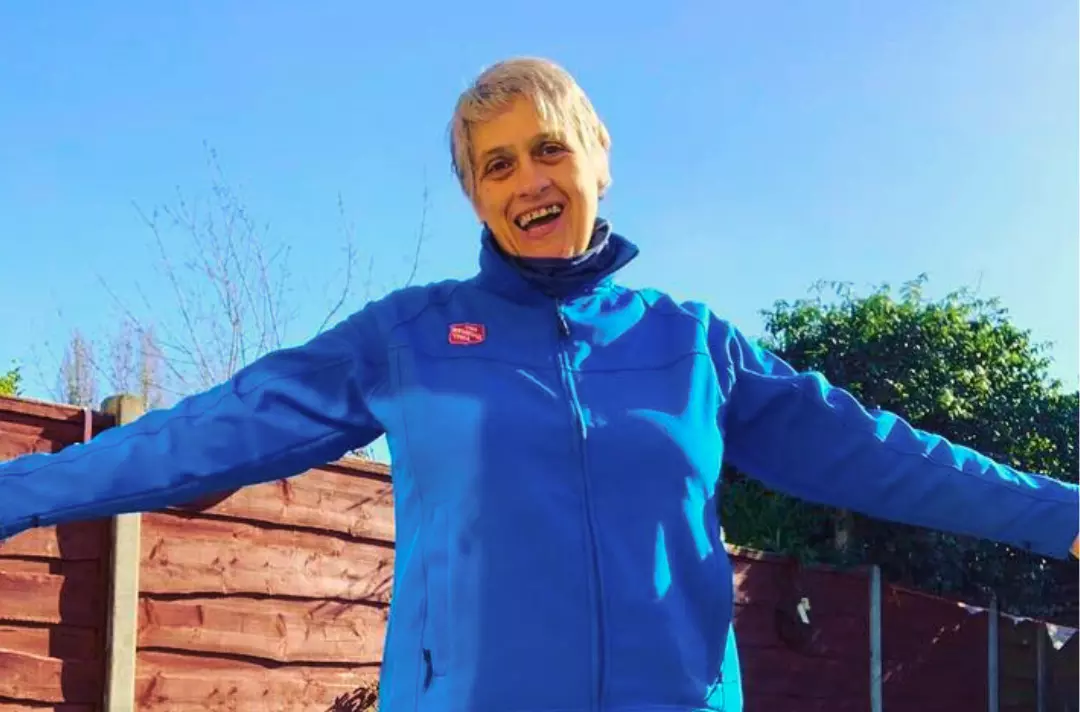
Ahead of the International Day of Prayer for Victims of Human Trafficking (24 September) Territorial Chaplaincy Officer Major Estelle Blake unpacks the vital role that chaplains play in safe houses.
What is a Salvation Army safe house?
It’s accommodation for survivors of modern slavery who are not safe where they are while we support them to recover.
What does it mean to be a safe house chaplain?
Chaplains go into safe houses and outreach centres to connect with survivors and staff. Most of them are officers, some are volunteer lay people. I suppose a chaplain’s role is seeing people where they are – not going in with any agenda – and being available to support them. We loiter with intent. That might mean sitting in a room once a week playing board games, or joining a singing or craft group. It might mean having a cup of tea with staff members after they have heard a particularly difficult story, or working with a manager on how to support people.
We are a Christian-based community whose focus is on Jesus. As chaplains our first thing is to love God, and that inspires us and pushes us to love others by being present with them. Our first aim is to be Jesus.
What’s unique about safe house chaplaincy?
It’s a hidden-in-plain-sight ministry. Our chaplains mustn’t be identified in a lot of what they do because, the moment they are, we can put people in danger. You can’t go shouting about this ministry. You sign a non-disclosure agreement and confidentiality policies, so the truth is, very few people will know that you’re doing it.
How does someone go about becoming a safe house chaplain?
They don’t. It sounds awful, but we’re very particular about who we nominate. It’s not because we’re trying to be awkward, but truth be told some people are not appropriate. I would be the worst territorial leader or businessperson! It’s about looking at somebody’s skills and understanding how they fit into what we need.
How do chaplains benefit people of other faiths or none?
With people of Muslim faith, we can connect through the Moses and Abraham stories. But sometimes it’s about pointing people to the right place. When you’re a survivor, people have often taken everything from you – the only thing you have left is your faith. As chaplains it’s about pointing someone towards a sense of spirituality. We’re there to be Jesus, and for some people that’s hard.
A lot of people are happy for us to pray with them. But, if not, we’re happy to find somebody who can connect with them. One of our chaplains has good connections with a local imam and provided the Qur’an to a survivor. It’s about making sure they have access to what they need without indoctrinating them.
What does a chaplain bring that others could not?
As chaplains, we can’t change situations for survivors – that’s not our job. But we can walk alongside a survivor and be present when staff are busy. We’re the ones able to chat through situations. Often our service managers are not allowed to express their faith because of their contract. Our role is to pray; pray with and pray for. I know I say it a lot, but our role is to be Jesus.
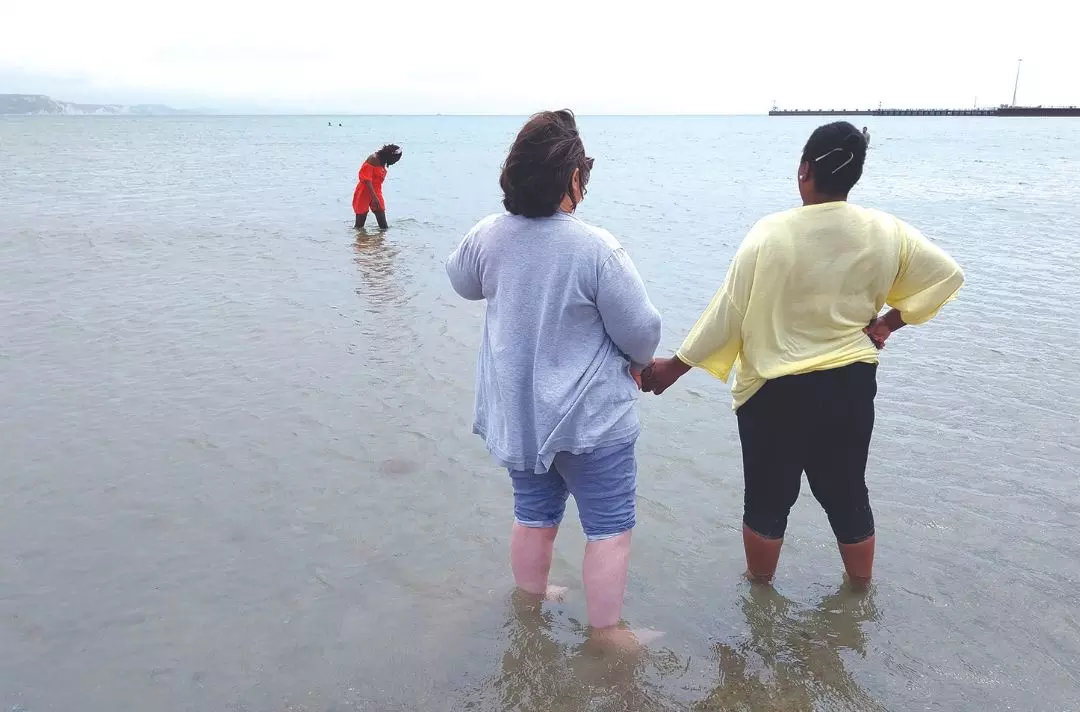
Staff members share the value chaplains have brought
Paul* says:
‘We’re blessed to have a chaplain in the safe house. I say “blessed” because I truly believe that the staff, I as service manager and, most importantly, the service users have been and continue to be.
‘The chaplain is a listening ear, a constant, calm, respected influence who brings engagement. The barriers of language, age, culture and belief are lessened over a cup of coffee and, of course, the occasional biscuit, and they can confidentially and slowly build relationships, which I believe is what Jesus would be doing.
‘We celebrate all cultures, faiths and beliefs; sometimes, it’s all service users have left of themselves when they arrive. So, we embrace that and show them the love of God through our hands and feet, being kind, generous, non-judgemental and caring in loving all God’s creation. Having a chaplain has enabled us to do this so much better. Long may that continue.’
Lucy* says:
‘Our chaplain is an invaluable support for the residents and staff of the safe house. They offer spiritual, pastoral and, where appropriate, religious guidance to the residents, regardless of their nationality, ethnicity or religious beliefs. They encourage inclusivity and have been instrumental in bringing to life the activity and inter-faith centre, which is of huge physical and mental benefit to everyone.
‘They are a friendly professional, always making space to engage with residents and staff, keen to celebrate progress, and providing a calming influence. They are constantly improving the wellbeing of the women through arranging activities, including trips to the seaside, weekly craft activities, walking a dog, and volunteering at the corps café.
‘You can see the joy the women feel when the chaplain is coming. I wholeheartedly believe that they are integral to the reflection and recovery service we provide. The benefit to our residents is immeasurable.’
*Staff names have been changed
Discover more
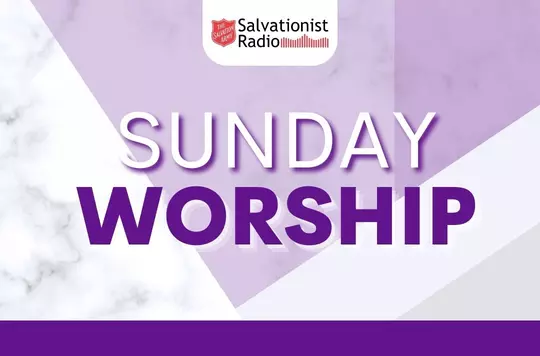
Major Estelle Blake shares a Bible message for The Salvation Army's International Day of Prayer for Victims of Human Trafficking.
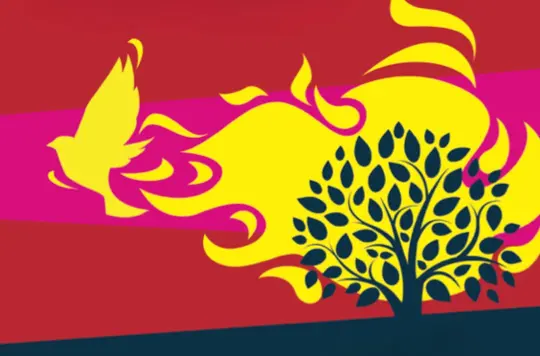
Resources to help plan your personal or corps participation in the International Day of Prayer for Victims of Human Trafficking.
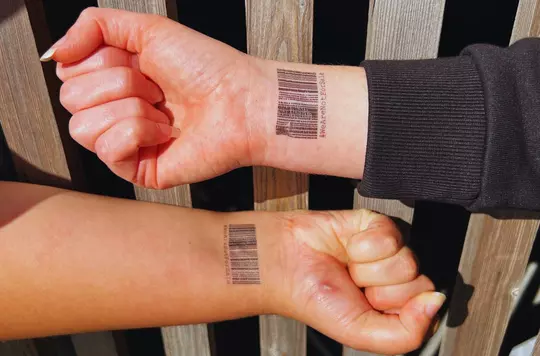
The Anti-Trafficking and Modern Slavery Department presents a concert to mark Anti-Slavery Day 2023.
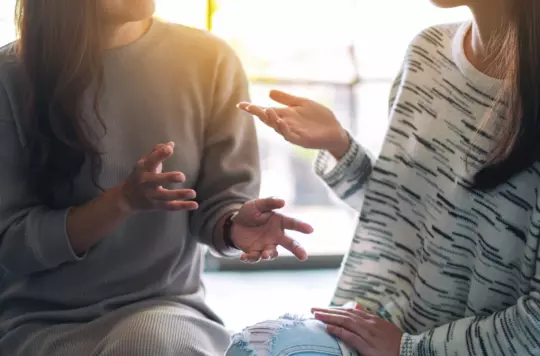
Salvationist finds out why people choose to volunteer for the Anti-Trafficking and Modern Slavery Department.